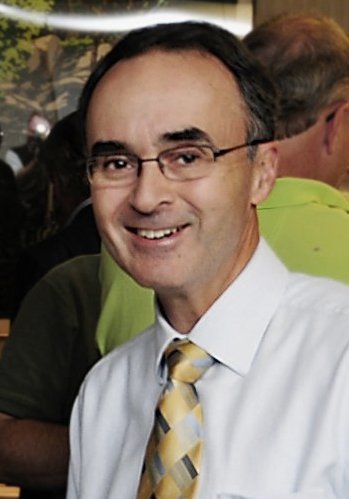WASHINGTON — Saying he “reveres the rule of law,” William Kayatta Jr. told Senate Judiciary Committee members Wednesday that his rulings will be bound by legal precedent and recognize a federal judge’s limited powers if he is confirmed to fill Maine’s seat on the U.S. 1st Circuit Court of Appeals.
Kayatta, a nationally prominent trial attorney and a partner in the Pierce Atwood law firm in Portland, faced only a few questions from the four committee members who were present for his hearing — none indicating any controversy that’s likely to impede his confirmation.
If endorsed by the Judiciary Committee and confirmed by the Senate, Kayatta, 58, of Cape Elizabeth, will replace Judge Kermit Lipez, who has held Maine’s seat on the appellate court since 1998. Lipez shifted to “senior,” semi-retired status on Dec. 31, and has said he will carry a full caseload until September.
The nation’s 12 circuit courts, just a step below the U.S. Supreme Court, are the final stop for most cases appealed from federal district courts, since few cases ever reach the Supreme Court.
Circuit courts consider a wide range of issues, from businesses appealing tax law rulings to employees claiming workplace discrimination to police brutality cases.
Kayatta was one of two people whom Democratic U.S. Reps. Chellie Pingree and Mike Michaud recommended to President Obama in late May. Obama nominated Kayatta in January.
Republican Sens. Susan Collins and Olympia Snowe of Maine also support Kayatta, and both appeared at the start of Wednesday’s hearing to urge Kayatta’s prompt confirmation.
Snowe said Obama selected a “superbly qualified nominee who can and should attract strong, bipartisan support in the Judiciary Committee.”
Collins noted that the 1st Circuit has just six full-time judges — the fewest of any circuit court — covering Maine, Massachusetts, New Hampshire, Rhode Island and Puerto Rico, so it can’t afford a vacancy.
“I urge the committee to act as quickly as possible on the nomination and to move it forward to the Senate floor, where he deserves overwhelming, bipartisan support,” Collins said.
Kayatta’s biggest hurdle may be the general partisan battle in the Senate over Obama’s judicial nominees and the pace at which they are getting Senate floor votes.
Kayatta’s hearing came on a day when Senate leaders barely averted a showdown over 17 judicial nominations that already have been cleared for floor votes.
Senate Majority Leader Harry Reid, D-Nev., threatened to hold all 17 votes in a row, which could have created days of procedural gridlock. Instead, Reid and Senate Minority Leader Mitch McConnell, R-Ky., agreed to a schedule that will have the Senate vote on 14 nominees by early May.
A potential problem for Kayatta, and the reason Collins and Snowe urged speedy action, is that the pace of judicial nominations typically slows as an election year goes on, and generally grinds to a halt by August.
But Carl Tobias, a University of Richmond Law School professor who is an expert on judicial nominations, said Kayatta’s hearing “went very smoothly” and could lead to a “strong vote out of the Senate Judiciary Committee in the next month.”
Sen. Chuck Grassley, R-Iowa, the top Republican on the committee, asked Kayatta if he supports the body of law that finds gun rights to be an individual right guaranteed by the Second Amendment. Kayatta declined to discuss his personal views, but told Grassley that he would respect legal precedent on that and all other cases that come before the court.
Kayatta told GOP Sen. Michael Lee of Utah that the federal courts are “courts of limited powers and jurisdiction. Part of being a good judge is to always ask yourself if you are operating within its limits.”
Grassley noted that Kayatta has supported Democrats, including Obama, and asked Kayatta if his political leanings would affect his evaluation of cases as a judge.
Since 1993, Kayatta has contributed about $10,000 to federal candidates, all of them Democrats, according to records compiled by the nonpartisan Center for Responsive Politics. His most recent contribution was in May 2007 when he gave $1,000 to Obama.
Kayatta told Grassley that he would not let his political views affect his work as a judge.
Kayatta graduated from South Portland High School in 1972, from Amherst College in 1976 and from Harvard Law School in 1979.
MaineToday Media Washington Bureau Chief Jonathan Riskind can be contacted at 791-6280 or at:
jriskind@mainetoday.com
Twitter: Twitter.com/MaineTodayDC
Send questions/comments to the editors.



Success. Please wait for the page to reload. If the page does not reload within 5 seconds, please refresh the page.
Enter your email and password to access comments.
Hi, to comment on stories you must . This profile is in addition to your subscription and website login.
Already have a commenting profile? .
Invalid username/password.
Please check your email to confirm and complete your registration.
Only subscribers are eligible to post comments. Please subscribe or login first for digital access. Here’s why.
Use the form below to reset your password. When you've submitted your account email, we will send an email with a reset code.